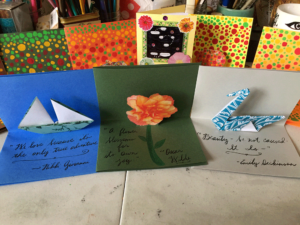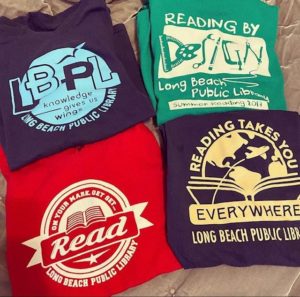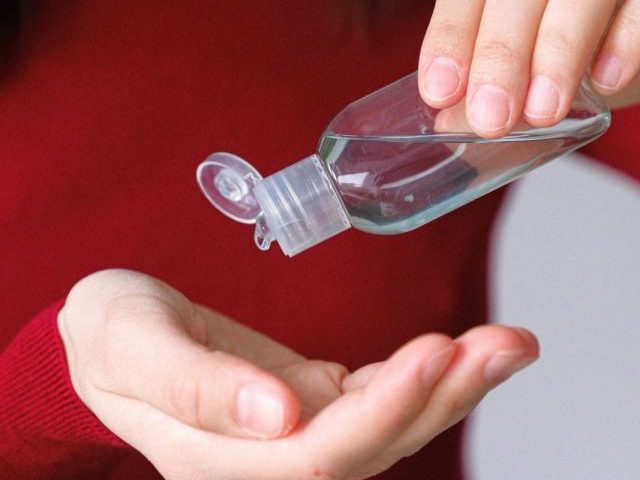We asked APALA members to share their experiences during the COVID-19 pandemic. These are some of their stories.
Alice Sherwood
I am an Asian American, who immigrated to this country almost 15 years ago from Taiwan. Using Chinese as my first language nowadays isn’t that often. Still, many times people still inquire about where I am from, as if I am still an outsider, despite the fact that I live in Houston, which is a very diverse city. These days, my new normal consist of weeding a lot of library materials, reading pictures books that are translated into Chinese from English, which I finally was able to have opportunity to do due to COVID. When I am not working, l find time to do gardening and try out new recipes. When I do go to non-Asian grocery stores, that is when it appears that I stand out as an oriental person with a facial mask on, and get stares by people asking me why I take their job opportunities away. Racism nowadays seems to occur more now than ever pre-COVID.
Charlotte Roh
I caught a cold the second week of March that turned into bronchitis, which of course scared my husband because I had a fever, fatigue, and a cough that wouldn’t quit. I knew it was bronchitis because I used to get it every year from junior high into young adulthood. But my husband’s only seen me sick like this a few times. The baby got sick too, with a bad fever, then a rash all over her body. Thankfully we both were better after two weeks. But my cough persisted, so my husband wouldn’t let me out of the house because he was scared that I would get attacked. “He’s right,” everyone said, because Asians and Asian Americans are getting harassed for nothing at all, for just existing in this racist fearful world.
The silver lining to my illness was that I couldn’t keep up with my work. I felt so guilty for not doing more, but it kept me from burning out in the rush to online-only services and allowed me to prioritize holding my sick and confused child. Last week my husband went back to the lab, working on COVID-19 as an infectious diseases scientist, and it was okay. I check email whenever the baby sleeps, and she makes a guest appearance on most of my web meetings.
I feel so blessed to have food, shelter, job security, and loved ones, but I can’t believe that so many in this country don’t have one or more of these things. Several of my closest friends are in the healthcare profession, and I’m constantly praying over their safety and obsessing over the failings of our government. I don’t know how not to be complicit, how not to be guilty while at the same time being grateful for the life that I do have.
Dawn Wing
I’m taking it one day at a time, and not taking the peace and solitude I have in this moment for granted. I’m allowing myself to grieve, delve into difficult, complex feelings I have about what’s happening in the world. And I’m appreciating the natural beauty around me whenever I take a walk or bike ride outside.
I keep doing whatever helps to ground me–taking my time to do tasks mindfully and with as much gratitude and positivity as possible, whether in my remote reference and instruction library duties; making myself a simple, tasty home-cooked meal; writing a letter/calling a friend; blasting my favorite tunes while dancing by myself inside; chuckling at the loud conversations I can hear my neighbor having downstairs; and directing my creative energy to share some art with others.
I discovered a local volunteer opportunity asking for handcrafted note cards to distribute to isolated residents of group living communities, some of whom are the elderly and/or living with HIV. I’ve made between 40-50 pop up note cards that include origami swans, boats and flowers with quotations. It’s a humble way of sharing a slice of the natural world which I enjoy so much with others who aren’t able to get out as much now, if at all. Doing this reminds me of how much control I still have over what I can do during such uncertainty. And lucky for me, it keeps me calm, focused, motivated, sane, and alive inside.

Alyssa Jocson Porter
A white co-worker of mine said that when she takes her dog out for walks now, her neighbors make eye contact, smile, say hello. The Seattle Freeze is thawing, she said. Whereas, when I am walking my own dog in my neighborhood, I am especially aware that I am one of the few Asian faces around. I’m still feeling the cold.
Christina N.
One of the things that I take pride in caring about is our physical appearances. Having to telecommute from home has challenged me to continue and compromise some daily routines. It can be easy to slide into a lazy pajamas/work from home look. So, I promised myself to meet somewhere in the middle now that I no longer have to be “put together” in business casual attire since we’re not meeting our colleagues, but understand the impact it can have if I go too casual. So, during the work week, I opted to wear all the accumulated library/staff t-shirts I’ve collected from summer reading programs and outreaches and will adapt a “uniform” of sort. I will wear a different shirt every day during the work week. This way, I’m super comfortable and can focus on my assignments and feel connected to work.

Rachel Stark
My new normal is big fuzzy, dogs who wish I was not home. My new normal is waiting for my significant other come home and hoping for no exposure or injuries. My new normal is being told by the leadership of my library that this is “not a vacation”. (We have VERY different ideas of what a vacation is) My new normal is an office with windows. My new normal is playing with my dogs. My new normal is being able to start work relaxed-ish, instead of starting work after a lengthy commute. Normal remains with kind and caring friends. Normal remains with my lovely snail mail pen pal group. Normal remains with phone calls with my family. Normal remains with good food and good books. I hope that our new normal will be one of compassion and care. I hope that our new normal will be one in which people think of others before themselves, at least some of the time. I hope that our new normal is one that raises all ships.
Arya
I am White-Vietnamese, traced to my grandmother and her family comprised of both immigrants and refugees. People will not immediately cast me as Other when mention of disease comes up. The times people ask what I am or where I am from is nothing compared to what my oldest cousin experiences as a distinctively brown Vietnamese woman, or her youngest sister who appears Chinese. I can only echo the hashtag #SnifflingWhileAsian, not add to the space as someone who is white-passing due to her ethnic ambiguity. Still, my normal has changed – yet remains the same. My new normal includes additional uncertainty of what will happen to my family. Now added to the fear of Immigration and Customs Enforcement (ICE) taking them away for the smallest slight is stigma, xenophobia going back to the days of “Yellow Peril” propaganda, and the exponential increase of racial violence against Asian-Americans. Any day, just for existing as Southeast Asian, they may face peril. My new normal is being unable to do in-person outreach to educate a mostly underserved White Appalachia population while creating an affirming space for the marginalized. Space where multiple people could cross and dwell, with grace and learning how to be better human beings. Everything now is online, including exhausting vigilance fighting misinformation about COVID-19 in effort to oppose the most powerful perpetrators of white hegemony. I must daily, begrudgingly navigate and consolidate university legal counsels’ sensibilities when making fliers, signs, and content that must and should always speak truth to power. My new normal is still ambiguity, extrapolated by the crises caused by COVID-19.
Contribute
“What’s Your Normal?” is a series of personal essays, accompanied by resource lists, highlighting the different kinds and forms of identities within APA populations. If you are interested in contributing, or have any questions, email Molly Higgins, communications@apalaweb.org

